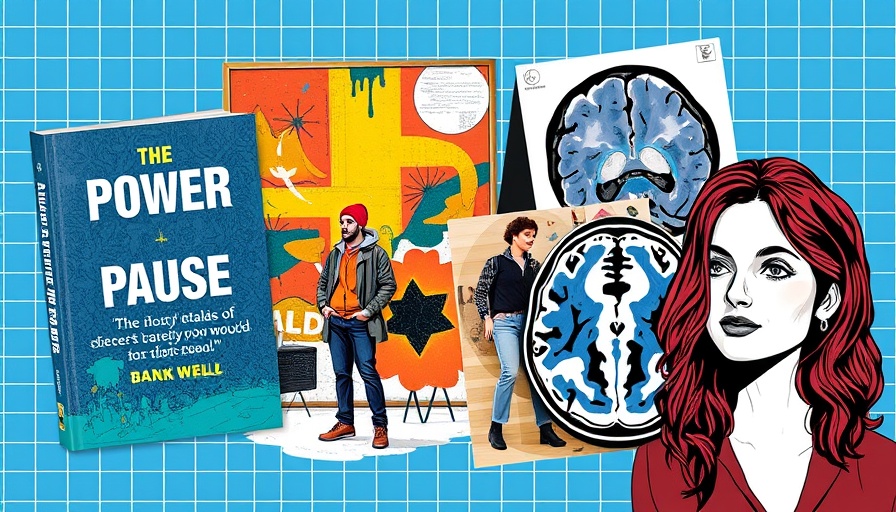
The Unseen Struggles of Caregiving for Alzheimer’s Patients
In the heart of Jerusalem, as the turmoil outside rattles windows and spirits, Michael Tobin’s reflections on his wife’s battle with Alzheimer’s echoes the experience of countless families. The emotional toll caregiving takes is often unseen, hidden behind the strength one must muster to face each day. Caregivers find themselves managing not just the physical needs of their loved ones, but also the psychological strain of watching them fade into shadows of their former selves. Just like Tobin’s Vagigaloupi, an imaginative symbol of joy amidst despair, caregivers are often the unseen warriors, wielding patience and love, even when they feel overwhelmed.
Parallel Experiences: Stories from Caregivers
Much like Tobin, who recalls moments of connection despite his wife's memory loss, other caregivers share similar stories. One Philadelphia resident, Sarah, has taken care of her father, who is also suffering from Alzheimer’s. “Some days, he recognizes me; other days, I’m just a stranger. But there’s a flicker, a moment when he laughs at something silly I say,” she explains. These moments, albeit fleeting, become precious lifelines that not only sustain the caregiver but also bring warmth to the patient’s world.
Understanding Alzheimer’s: What Science Tells Us
Alzheimer’s disease is not just a condition that robs memory; it affects mood, understanding, and even the ability to perform daily tasks. According to the Alzheimer’s Association, over 6 million Americans, mostly over the age of 65, suffer from this debilitating disease. Understanding the biological mechanisms behind Alzheimer’s, including amyloid plaque buildup and neurofibrillary tangles, can empower families to better manage care and improve quality of life.
Future Insights: Preparing for the Journey Ahead
The landscape of Alzheimer’s research is constantly evolving, with groundbreaking studies aiming to find effective treatments and support systems. As awareness grows, innovative support networks are being developed that facilitate partnerships between family caregivers and healthcare providers. It's a call for families to unite and explore educational resources that could enhance their understanding and ability to cope.
The Emotional Toll of Caregiving
While caregivers exhibit boundless love, they often face emotional fatigue themselves. The National Alliance for Caregiving reports that 59% of caregivers experience physical or emotional stress. Such stress can manifest as anxiety, depression, and feelings of inadequacy. In the face of such revelations, mental health must not become an afterthought. Resources for caregivers—including support groups, therapy, and respite care—can dramatically improve their well-being.
Decisions You Can Make with This Knowledge
For families facing Alzheimer’s, the need for proactive decisions about care is paramount. Choices about in-home care versus assisted living, exploring legal and financial planning, and knowing when to seek professional help can make all the difference. Education is a powerful tool; by understanding the options available, families can tailor their approach to fit their unique circumstances.
Michael Tobin’s profound reflections are but one narrative among many; they prompt us to reassess how we approach aging and illness. As we learn from those like Tobin, a collective responsibility emerges to advocate for caregivers, ensuring they receive the support necessary not just to survive, but to thrive in the face of challenges. As we navigate these complexities, let us foster a community that supports one another in times of need.
If you or someone you know is experiencing the challenges of caregiving, reach out to local resources or health providers. Don’t let the darkness overwhelm; instead, embrace the light of connection and support.
 Add Row
Add Row  Add
Add 




Write A Comment